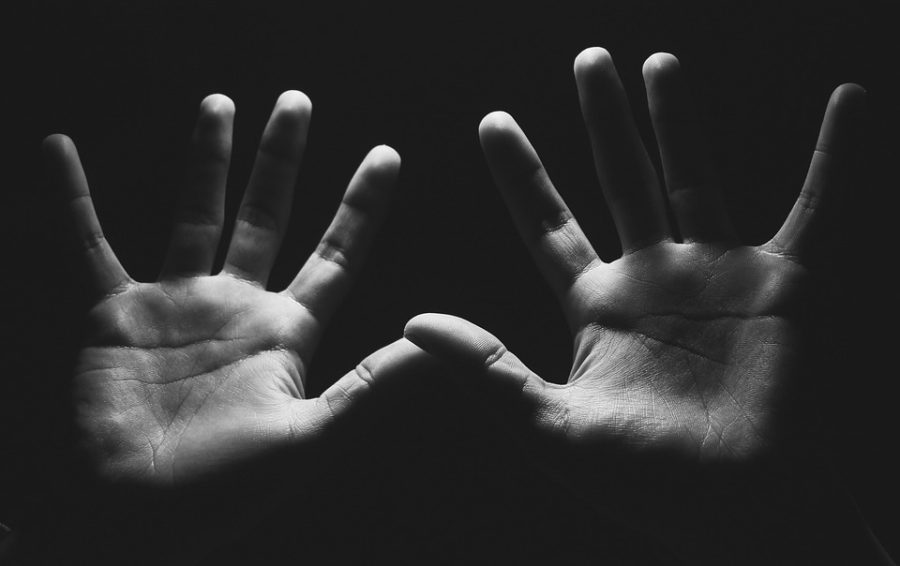Fear of the Dark: Childhood Fright or Concerning Phobia?
May 24, 2023
Picture this: you’re about to sleep, and you walk to the front of your room; your hand reaches out for the light switch. You hesitate; you take a deep breath in and prepare yourself. Click! Lights out! Within a fraction of a second, you frantically bolt toward your bed and almost trip, but you somehow find yourself in the sanctuary of your bed and covers. Most people can somewhat relate to this nightly routine, and it is likely that we have an intrinsic fear of the dark that has carried on from our childhood. Nearly all of us are uncomfortable in the dark from time to time.
According to a scientific study published in Behaviour Research and Therapy, over 70% of children reported having some sort of fear of the dark, suggesting that these fears are quite pervasive within the younger population.
Children are afraid of the dark for a multitude of reasons. First, darkness generally limits an individual’s vision. According to USA Today, not being able to see clearly can cause disorientation and a sense of uncertainty. In addition, children may also feel a fear of the dark due to bad associations with it, or bad experiences they have encountered, such as nightmares. Moreover, the origin of this fear can stem from a lack of safety. For example, the separation from a parent or the lack of a stuffed animal that gives a child security can also induce a sense of danger.
However, this fear is also common among adults. For some, the fear never dissipates from childhood, although the emotion is more likely caution than fear about what creatures might “lurk in the dark.” As reported in Science Alert, researchers have hypothesized that this fear may have come from an adaptation that has allowed humans to survive. It is believed that “before tech, our ancestors were constantly on the lookout for predators” that hunted during the night. Since it was imperative that our ancestors stayed alive, this nightly caution eventually became spontaneous. This reaction has also been incorporated with humans’ fight or flight response, which is a mechanism our body uses to respond to a stressful or frightening situation. Although this specific response isn’t as heightened as before, it has merged into a form of anxiety.
Moreover, according to an article by CNN Health, it is believed that there is a correlation between the color black and a fear of the dark. Although the color has gone through a major evolution, it is still linked to gloom as represented in depictions of evil, such as the Grim Reaper. Many people make the association that “the unknown” is related to the color black, which causes a sense of mystery and a fear of things we cannot see in the dark. The color black also has many negative connotations, with comparisons to darkness, grief, and mystery, making it subject to connections between the night and these related superstitions.
Although most people can relate to having a degree of fear of the dark, it usually isn’t of extreme concern or severity. However, some people have a condition called nyctophobia, which “is an extreme fear of night or darkness that can cause intense symptoms of anxiety and depression,” according to Healthline. A general unease in the dark can transition into a phobia when it becomes irrational and impairs day-to-day life and sleep patterns. Some of the symptoms that can arise from nyctophobia include chest pain, shaking, trembling, and uncontrollable emotions such as anxiety. In addition, scientists think that nyctophobia may be correlated with other sleeping disorders, including sleep paralysis and insomnia.
Overall, the fear of the dark has long been a common source of stress for many. From an evolutionary standpoint, certain fears and trepidations are our body’s way to promote survival. As an example, humans feel pain in order to protect our bodies from sources of harm. Our pain and neuron system has been developed and amplified under certain conditions. Likewise, since a fear of the dark was advantageous for our ancestors in the past, it may have been passed down through the human genome through natural selection, the process that drives evolution. Although there are always negative associations around this fear, it is remarkable to ponder that this has been the result of human instinct keeping the human species alive for many years when they were vulnerable.


















































































































































